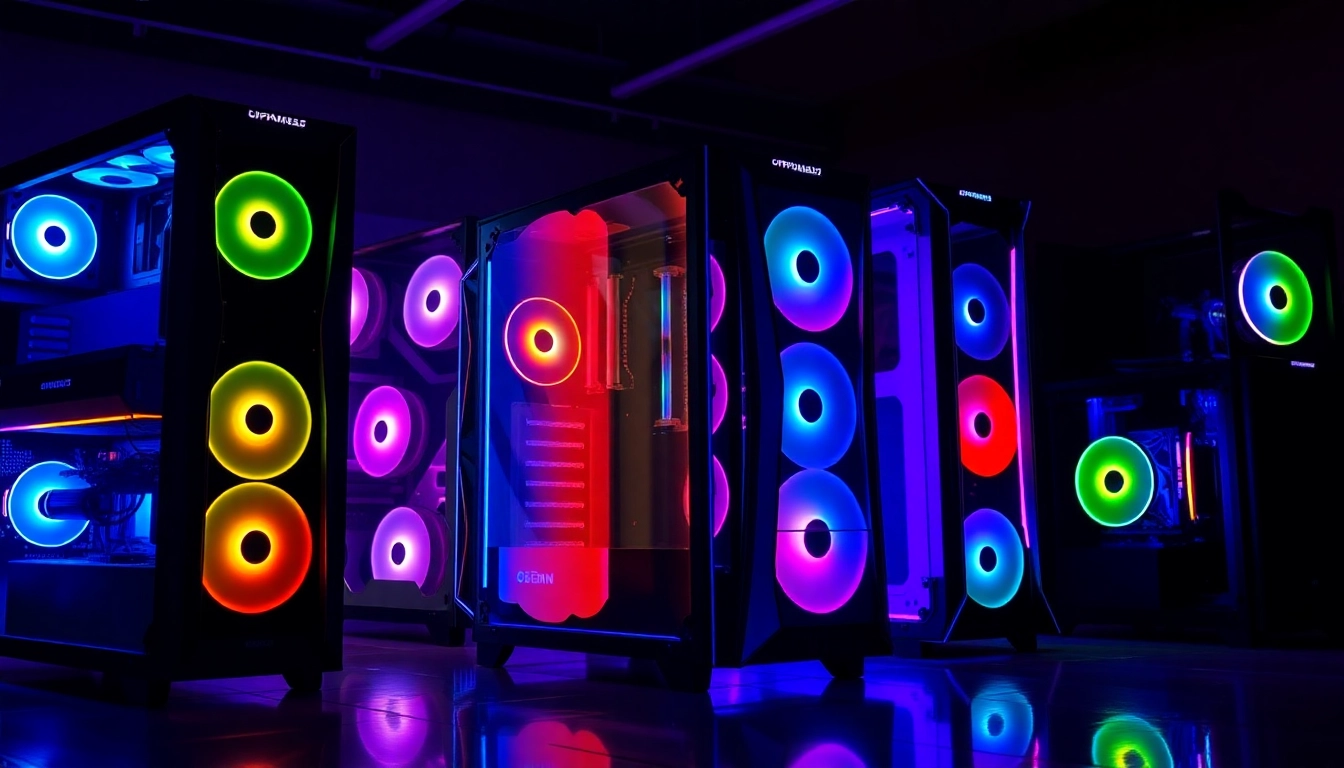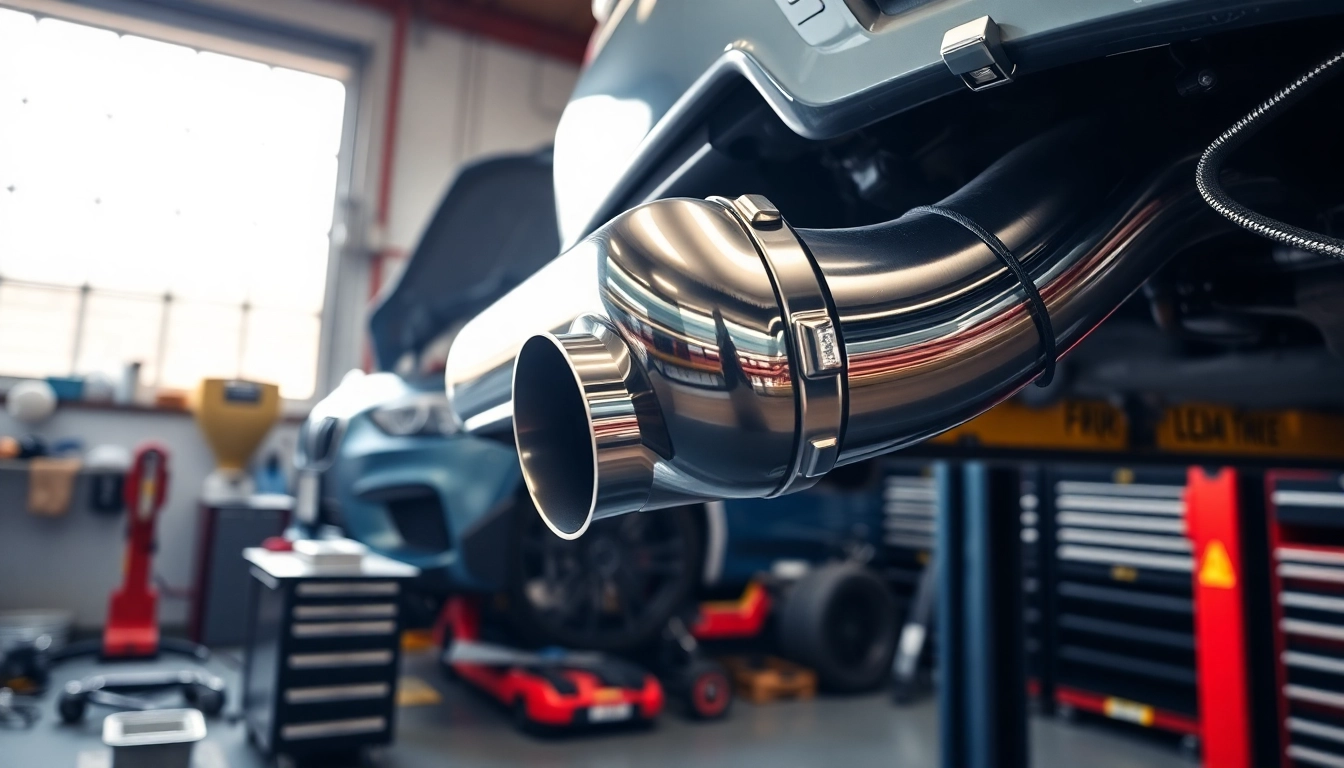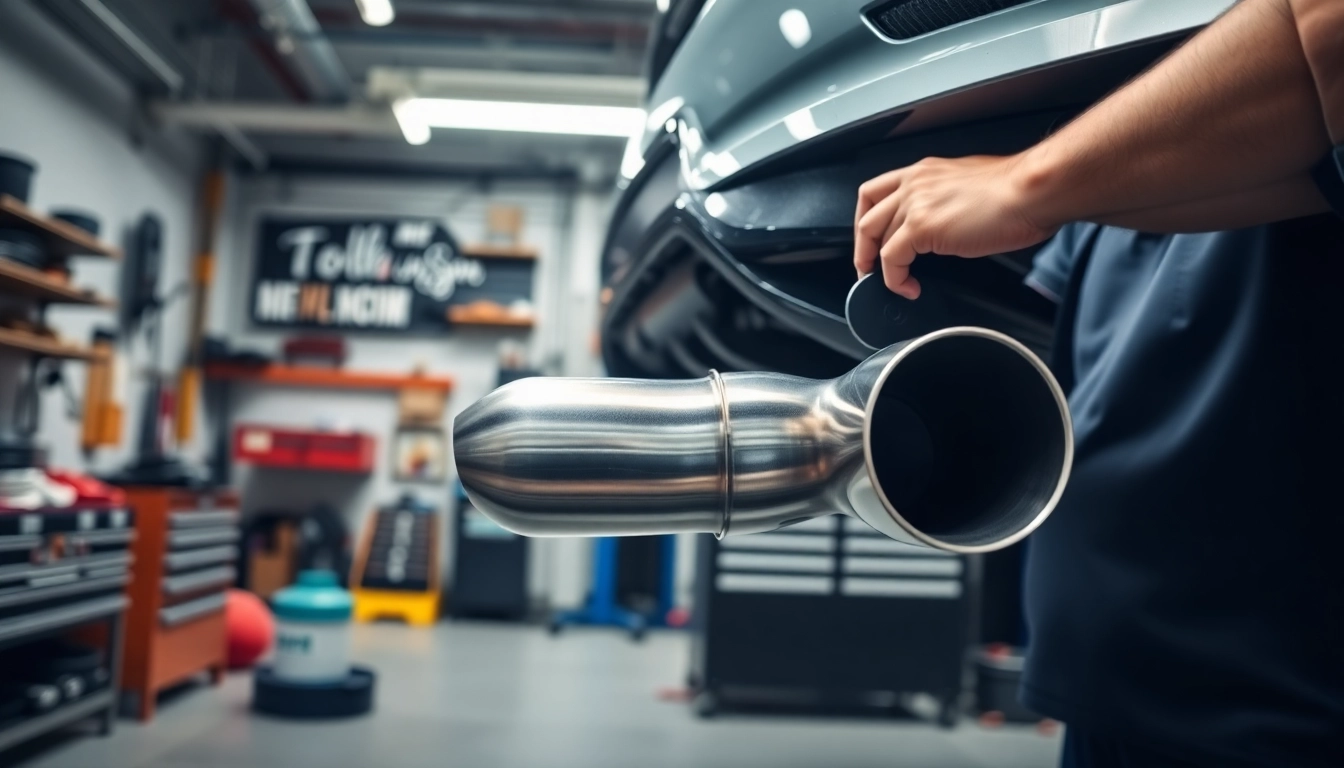
Understanding the Role of a PC CASE Manufacturer
When it comes to building a personal computer, whether for gaming, work, or other applications, the choice of the PC CASE Manufacturer plays a critical role. These manufacturers not only provide the physical shell for your components but also incorporate various features that affect the overall performance, aesthetics, and longevity of your rig. In a rapidly evolving market with an abundance of choices, understanding the landscape of PC cases is vital for both seasoned enthusiasts and newcomers aiming to create their ideal setups.
The Importance of Quality in PC Cases
Quality in PC cases translates to more than just a sturdy exterior; it impacts airflow, cooling efficiency, and even the ease of assembly. A high-quality case will feature robust materials that resist wear and tear, ultimately safeguarding your hardware investment. For example, cases made from aluminum are often favored for their lightweight yet durable properties, while steel cases provide a different level of protection. Quality also encompasses the design of the case, including how well it manages temperatures through effective airflow designs and fan placements.
Key Features to Look For
Choosing the right PC case requires attention to several key features:
- Airflow and Cooling: Look for cases that support multiple fans or have space for liquid cooling solutions. Good airflow is crucial, especially for high-performance gaming systems and workstations.
- Build Quality: Examine the materials used. Cases built from thick steel or aluminum will generally hold up better than cheaper plastic alternatives.
- Expandability: Ensure the case can accommodate future upgrades, whether through additional hard drive spaces, larger graphics cards, or more RAM slots.
- Ease of Cable Management: Features such as hidden channels for cables and provided tie-down points will help maintain a clean and functional build.
- Compatibility: Ensure the case is compatible with the motherboard size you plan to use, whether it be ATX, Micro ATX, or Mini ITX.
Best Practices for Selecting Your Case
Selecting a PC case shouldn’t be an afterthought; rather, it should be one of the first steps in your build process. Start by considering your primary use for the PC—gaming, graphic design, data processing—and evaluate your component choices early on. Assess your space requirements and desired aesthetics to select a case that complements your personal or professional environment. Always check detailed reviews and ratings to gauge user experiences with airflow, noise levels, and durability over time.
Types of PC Cases: What Every Gamer Should Know
PC cases come in various shapes and sizes, each tailored for specific needs and preferences. Understanding what these different types offer can help users make informed choices.
Full Tower vs. Mid Tower: The Size Debate
When selecting a case, one of the first decisions is often about size. Full Tower cases are ideal for users looking for maximum expandability, providing ample room for extensive cooling systems, large graphics cards, and multiple drives. They are typically more expensive but offer superior airflow and customizability. In contrast, Mid Tower cases are more budget-friendly and space-efficient while still offering decent expandability and airflow options, accommodating most standard builds without unnecessary bulk.
Specialty Designs and Their Applications
For specialized uses, such as small form factor builds or silent operation, manufacturers offer niche designs. Small Form Factor (SFF) cases are compact and can fit into tight spaces while maintaining essential functionalities, catering mainly to minimalist setups or home theater PCs. On the other hand, Silent Cases often utilize sound-dampening materials and less aggressive airflow designs, targeting users who prioritize quiet operation over maximum cooling efficiency, such as audio engineers or gamers engaging in high-stakes competitions.
Innovative Materials in PC CASE Manufacturing
Aside from traditional metal and plastic components, many modern cases are starting to integrate innovative materials. For example, tempered glass panels are becoming increasingly popular as they offer both aesthetic appeal and protection for internal components. Moreover, carbon fiber and brushed aluminum are also being utilized to create unique designs that enhance structural integrity while decreasing weight. These materials contribute not only to looks but also to the overall performance of the case.
Brands Setting Standards in PC CASE Manufacturing
The PC case market is populated with numerous manufacturers, each with its own specialties and strengths. Knowing which brands to trust can greatly enhance the decision-making process.
Leading Brands in the Market
Some of the most reputable PC case manufacturers include:
- Corsair: Renowned for providing both high-end and budget-friendly options, known for their exceptional cooling solutions and innovative designs.
- NZXT: Famous for their elegant aesthetic, which includes customizable RGB lighting and simple cable management, making them perfect for gamers and aesthetic enthusiasts alike.
- Fractal Design: Known for their clean designs and efficient airflow systems that cater specifically to enthusiasts and professional users.
- Lian Li: A premium brand that specializes in aluminum cases, often praised for their durability and lightweight properties.
Customer Favorites and Reviews
Understanding customer experiences can provide valuable insights into product quality. Many customers value Corsair’s 4000D Airflow for its excellent cooling performance and affordability, while others praise NZXT’s H510 for its ease of building and aesthetic appeal. Reading detailed reviews on platforms like Tom’s Hardware and community forums can assist in gauging how well a brand meets user expectations.
Emerging Manufacturers to Watch
Beyond established giants, several emerging brands are proving to be formidable contenders. Brands like Thermaltake and Cooler Master continue to innovate with unique designs that cater to diverse niches in the market. Custom boutiques such as Clackamas Custom Cases and Phanteks are also gaining traction for their tailored solutions and specialized cases, further diversifying the landscape of PC case manufacturing.
Customization and the Future of PC Cases
The trend of customization has surged in recent years, allowing users to build systems tailored to their personal tastes and performance needs.
The Rise of Custom PC Builds
More users are opting for custom PCs, leading to an increase in demand for cases designed with modders in mind. Customizability extends beyond aesthetics; it speaks to performance optimization. Many brands are now offering features such as modular designs that allow users to swap panels, swap out cooling solutions, and adjust sizes to suit evolving hardware.
Monetizing Custom Designs
As a result of the growing custom PC build culture, there has also been a rise in services offering bespoke design and manufacturing of PC cases. Companies that give users the ability to choose materials, colors, and configurations are capitalizing on this trend. This service not only adds a layer of personalization but allows manufacturers to tap into niche markets by appealing to enthusiasts who prioritize individuality.
Trends Shaping the Future of Custom Cases
The future of PC case manufacturing is being shaped by several trends, including:
- Increased Integration with Smart Technologies: Future cases may incorporate smart technology, allowing users to monitor temperatures and power usage directly through case interfaces.
- Eco-Friendly Materials: Environmental impact is becoming a focal point, leading to the use of sustainable materials in production.
- Innovative Cooling Solutions: The emergence of new cooling technologies, such as integrated liquid cooling systems, will redefine case design requirements.
Performance Metrics for PC Cases and Manufacturers
When evaluating PC cases, performance metrics become crucial. Users should consider a combination of cooling efficiency, build quality, and sustainability.
Cooling Efficiency and Airflow Dynamics
The ability of a case to cool components while facilitating sufficient airflow is a major performance metric. Cases designed with sizable intake fans and ventilation options often boast superior thermal performance, which can translate to enhanced component longevity. Users should assess benchmarking results and thermal performance reviews when considering a case for high-performance components.
Measurements of Durability and Build Quality
Total cost of ownership should include considerations of durability. Cases should withstand transportation and prolonged usage without compromising structural integrity. Reviews highlighting factors such as metal thickness, hinge strength, and panel fitting can provide a clearer indication of durability.
Environmental Impact of PC CASE Manufacturing
As consumer awareness increases, the environmental footprint associated with PC case manufacturing is becoming more crucial. Choosing brands that prioritize sustainable practices, such as recyclable materials and environmentally friendly production techniques, can contribute to more responsible consumption habits. Brands that transparently report on their sustainability practices often attract eco-conscious consumers, influencing their purchasing decisions.







